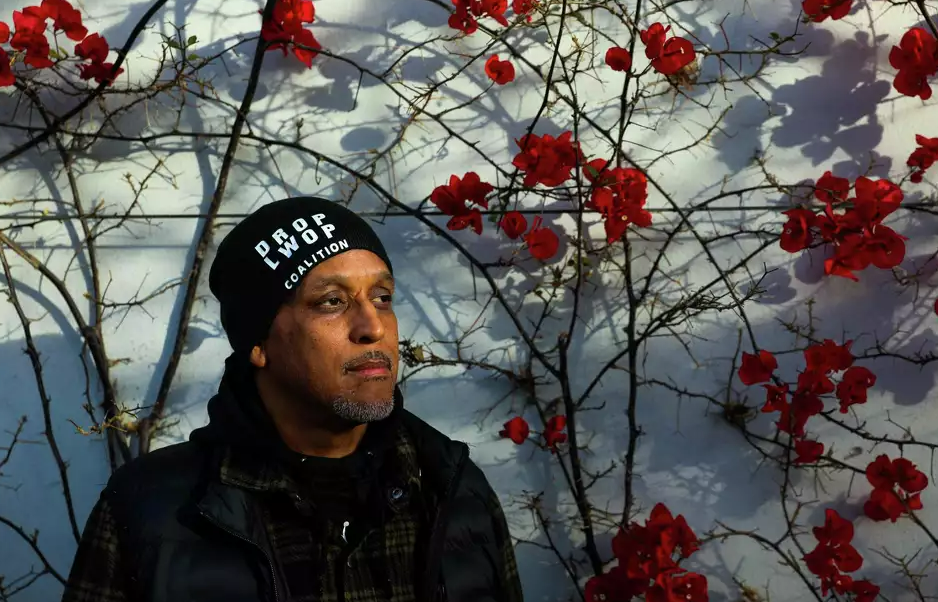SF Chronicle - Man on a Mission to Abolish Life Sentences
Bell was one of the first people resentenced and released under SB 1437, which significantly changed California's felony murder law

Joseph Bell is a Drop LWOP coordinating associate where he assists the coalition with coordinating communication and activities between work groups and builds the involvement of formerly incarcerated people and family members in the coalition. He is also a peer mentor with M3 (Men’s Mentoring Movement) where he works with system impacted individuals before they are released from the San Francisco County Jail.
In July 1995 at the age of 26, he was convicted of murder and sentenced to life without the possibility of parole. Bell’s remorse for his crime and resulting failure to be present in his son’s life caused him to turn his life around.
In 2018, California Governor Jerry Brown recognized Bell’s personal transformation and commuted his sentence, giving him the opportunity for parole. Then-San Francisco District Attorney Chesa Boudin chose Bell to be one of the first people resentenced under Senate Bill 1437, which significantly changed the state's felony murder law, making it more difficult to convict someone of murder under the "natural and probable consequences" theory, and allowing individuals previously convicted under this doctrine to petition for a reduced sentence. The legislation essentially required prosecutors to now prove a defendant had intent to kill to charge them with felony murder.
After serving nearly 25 years in prison, Bell was released on May 13, 2020.
The San Francisco Chronicle featured Bell's story, and his work to help end life sentences. Excerpts are included below.
*****
Joseph Bell is a free man now, but he still recalls with pain the 22 years he spent in state prison while sentenced to life without the possibility of parole for a San Francisco robbery in which his fellow robber killed the victim.
“You’re scheduled to die in prison. It leaves you hopeless,” said Bell, now 56. “Sometimes I wished I had the death penalty. Life without parole is like a slow death.”
That was his recognition that he could try to improve the lives and future prospects of his fellow inmates. He started work on rehabilitation programs after more than a decade in prison and has continued since his release in 2020, after more than two decades behind bars, as a case manager for a nonprofit in Hayward helping other former prisoners return to society.
Bell started that work while he was still in prison. He said he organized Education, Diversion and Goals to Endeavor, or EDGE, in 2008 to put youths in contact with educators, prison staff and “carefully screened prisoners” to encourage them to make “life-altering changes in their thinking.” The program included a tour of state prison yards.
“I didn’t start maturing until I was 40,” he said. “I just started getting older and doing a lot of self-care, self-work, taking cognitive behavior classes.” That’s also an argument against life-without-parole sentences, especially for those in their teens and 20s, Bell said, because “a lot of people’s brains mature. We do reckless things when we’re young.”
*****
Read the full feature, "He was supposed to die in prison. Now he’s on a mission to abolish life sentences" by Bob Egelko from the San Francisco Chronicle.










